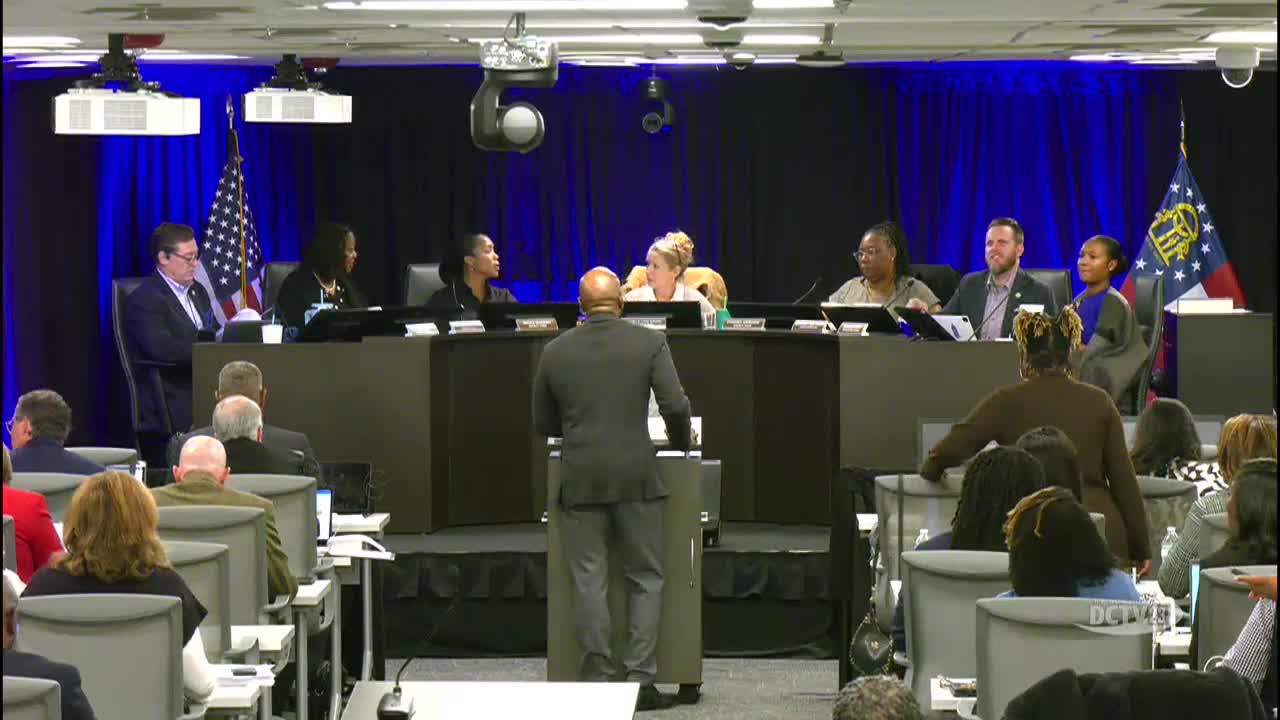Decide DeKalb reports strong pipeline: $2.5 billion in investment since 2020, small-business loan fund oversubscribed
Get AI-powered insights, summaries, and transcripts
Subscribe
Summary
The county’s economic development agency reported $2.5 billion in capital investments and more than 15,000 new and retained jobs since 2020 and said a new county-seeded small-business revolving loan fund has been oversubscribed.
A Decide DeKalb representative presenting the county’s quarterly economic-development update told commissioners on Oct. 21 that the agency has supported an estimated $2.5 billion in new capital investment in DeKalb County since 2020 and more than 15,000 new and retained jobs.
The presentation highlighted large current and recent projects that the agency said underlie those figures, including the Lula Hills redevelopment in unincorporated DeKalb (an $842 million project described by the presenter), a proposed AIG office hub in Brookhaven projected to add 600 jobs by 2026, and private-sector investments including a Home Depot distribution center in Stonecrest and a Pepsi expansion in Tucker.
Why it matters: Economic-development activity affects employment, tax revenue and the scope of future infrastructure and housing needs. Speakers said momentum creates opportunities to link workforce programs with new jobs and to leverage tax-allocation districts and other incentives for targeted community investment.
The agency reported targeted small-business work: a soft-decal pop-up incubator program, a DeKalb Black Business Guide, business-resource one-on-one assistance and workforce-development initiatives with partners such as WorkSource DeKalb and local school districts. The presenter said a county-seeded $2.5 million small-business revolving loan fund has been oversubscribed and that the office is seeking partners and additional capital to expand the program.
Commissioners asked about tax-allocation districts, timing of trail and infrastructure work associated with the Lula Hills project, and how TAD funds are being applied. The presenter said Edens (the private developer partner in the Market Square TAD) made an initial $4.5 million cash contribution toward the Lula Hills/Midlock/Medlock trail connection and that the TAD will generate additional increment over time to support further work. The presenter said some TADs have limited residential tax base and so are better suited for commercial or infrastructure projects tied to redevelopment rather than programs that require single-family residential tax increment.
Commissioner Ted Terry asked about structuring public-subsidy agreements to favor green infrastructure; the presenter said the agency negotiates a broad set of community benefits when it requests public subsidy and that, where feasible, it presses for sustainability and affordability elements in projects. Commissioners also asked for follow up on schedules and funding flow for specific TAD-supported projects and for information about the agency’s strategic plan, which the presenter said would be delivered in final form in the first quarter of 2026.
Quotes in the record included the presenter’s summary that the revolving loan fund was oversubscribed and the county would seek additional partners to scale the program. The presenter also invited continuing commissioner input into the agency’s five-year strategy and workforce efforts.
